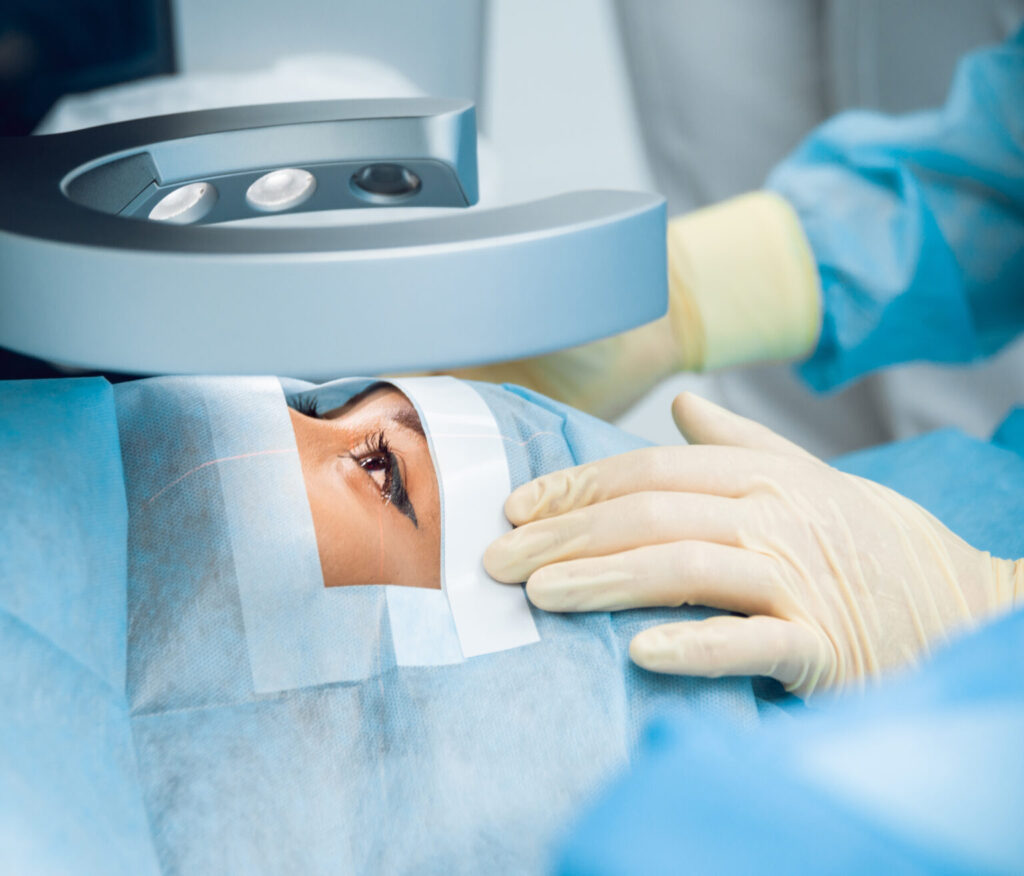Cataracts account for over 48% of the world’s correctable blindness. Sadly, many individuals tend to postpone visiting the eye doctor until their vision severely deteriorates or starts to interfere with daily activities. However, procrastination can exacerbate underlying conditions like cataracts. Fortunately, advancements in medical technology offer precise procedures for treating cataracts with minimal disruption to your routine and outstanding results. Do not let blurred vision hold you back – discover how cataract surgery can restore your clarity of sight and open a vibrant new perspective on the world around you.

Cataracts can stem from a range of factors, including aging, prolonged exposure to ultraviolet light, radiation exposure, smoking, alcohol misuse, eye injuries, genetic predisposition (such as a family history of cataracts), eye diseases, and diabetes. These diverse triggers contribute to the clouding of the eye’s lens, leading to vision impairment and necessitating appropriate medical intervention. Before reaching the age of 80, over half of Americans will encounter cataracts.
The most common age for people to be affected are those between ages 75 to 85 with them having a 91% chance of experiencing cataracts. That said, if you have been experiencing cloudy or blurred vision, difficulty seeing at night, or a decrease in color perception, it may be time to schedule a cataract consultation with your eye doctor. Typical indications of a cataract encompass hazy or blurred vision, double vision, reduced perception of contrast and colors, halos and glare surrounding lights, and/or difficulty seeing clearly in low-light conditions. When facing more severe instances, surgical intervention becomes necessary. If your daily activities are significantly impacted by vision impairment, your eye care specialist will suggest cataract surgery.
In your consultation, anticipate your eye doctor conducting a comprehensive examination of your eyes to assess the severity of your cataracts and devise a suitable treatment strategy. Typically, your cataract consultation will commence with a thorough review of your medical background and any symptoms you have encountered. Your eye specialist will inquire about your current medications and any preexisting medical conditions that could influence your vision.
Throughout the physical examination, your eye specialist will employ specialized tools to scrutinize the components of your eyes, including the lens. Additionally, they may administer specific assessments to gauge your visual acuity and assess the severity of your cataracts. These evaluations might encompass visual field testing, slit-lamp examination, and assessment of intraocular pressure. Furthermore, your eye doctor may conduct additional specialized tests to ascertain the most appropriate treatment approach for your cataracts. These assessments could involve measuring corneal thickness and curvature and determining the length of your eye.
Three of the major types of cataract surgeries are Phacoemulsification, Femtosecond Laser-Assisted Cataract Surgery (FLACS), and Extracapsular Cataract Extraction (ECCE). Modern cataract surgery at Thomas Eye Group uses the FDA-approved CATALYS™ Precision Laser System. This advanced system creates a customized treatment plan based on a 3-D map of the eye, ensuring precision ten times greater than manual surgery. Surgeons use the laser to create an opening for cataract access and gently remove the cataract. Afterward, patients have a choice of different intraocular lens options, including mono-focal or premium lenses with enhanced features.
While all surgeries carry inherent risks, complications with cataract surgery are notably rare. It stands as one of the most successful and commonly conducted procedures nationwide. Throughout your cataract evaluation, your surgeon will address any concerns you may have, and discuss the associated risks, benefits, and alternatives, ensuring you are well-informed before proceeding.
The actual procedure typically lasts around 15 minutes, but your entire visit, encompassing pre-operative preparation, may span 2 to 3 hours. While post-surgery pain is uncommon, you may experience mild discomfort or irritation, which typically resolves within a few days. Should you experience significant eye pain following surgery, it is crucial to promptly inform your doctor.
Most cataract surgery patients experience improved vision within the initial 24 hours post-procedure. Itching and mild discomfort are typical and typically diminish within two days. Some fluid discharge may occur, and your eye may exhibit sensitivity to light and touch. To facilitate healing and reduce the risk of infection, your doctor will prescribe eye drops. Additionally, to promote optimal healing, your doctor may recommend limiting physical activities. After surgery, refrain from engaging in strenuous physical activity for two weeks, which include:
The cost of the surgery varies based on your insurance coverage and the type of lens you choose. Testing fees for determining lens power may not be covered by insurance. Laser-assisted cataract surgery and premium lens packages are typically not covered by insurance but can be discussed further during your cataract evaluation. Any out-of-pocket fees will be thoroughly reviewed by a financial counselor after your appointment with the doctor and surgical counselor.
The outcome hinges on your eye anatomy and the lens choice you and your doctor opt for. We provide a diverse array of lenses, some of which reduce reliance on glasses. However, these premium lenses are typically not covered by insurance. Glasses may still be necessary for activities involving astigmatism, distance, intermediate, and near vision. Your doctor will thoroughly discuss the most suitable options with you during your appointment.
Our team of expert cataract surgeons are here to help you regain clear vision.
Contact us to schedule your consultation today or call 678.892.2020 ext. 3937 [EYES] to learn more about cataract-related items.
The material contained on this site is for informational purposes only and is not intended to be a substitute for professional medical advice, diagnosis, or treatment. Always seek the advice of your physician or other qualified health care provider. Section 1557 – Affordable Care Act (ACA)
Due to a high call and chat volume on Mondays, you may experience a brief delay in response.